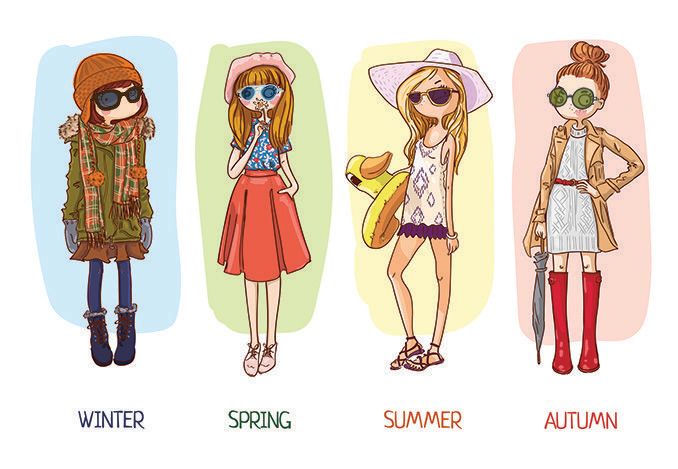Why should you wear sunglasses year-round?

Should you wear sunglasses year-round? Yes. The sun's harmful ultraviolet (UV) rays don’t take a vacation no matter the season, and neither should your sunglasses.
Why you should wear sunglasses year-round
Whether you can see the sun or clouds have masked its brilliance, ultraviolet rays can cause significant damage to the eyes without proper protection.
In fact, when it comes to UV light exposure, partly cloudy days can be just as, if not more, damaging. According to the World Health Organization, 90% of UV rays can penetrate light cloud coverage.
Why should you keep your shades nearby, whatever the season or weather forecast? Let us count the reasons:
1. Sun protection for all-year activities like driving
Sunglasses aren’t just for prolonged outdoor sun exposure in spring and summer. Sunglasses should be part of year-round activities like driving.
Because a car’s windshield offers very little protection from UVA rays and glare, wearing sunglasses while driving will provide added safety for your eyes.
Two types of sunglasses to consider for driving:
Gradient lenses: Gradient lenses are tinted at the top of the lens to shield the eyes from high sunlight while maintaining comfortable vision through the lighter part of the lens.
Polarized sunglasses: Polarized sunglass lenses can minimize road glare and provide clarity in foggy or partly-cloudy conditions. Note: Polarized lenses aren’t always the best option for driving as this lens coating can make it difficult to view LCD screens on dashboards.
Besides driving, sunglasses should be worn during year-round outdoor leisure and exercise like running, swimming and hiking. No matter the season or your age, sunglasses protect your eyes when you are outside.
FIND THE BEST SUNGLASSES FOR DRIVING OR YOUR OUTDOOR ACTIVITIES: Shop the perfect shades at an optical store near your or an online eyewear retailer.
2. Protect your eyes from allergens, irritants
Sunglasses shield your eyes from UV rays and also protects your eyes from the elements and other irritants.
For example, have you ever wondered why some cooks wear sunglasses while chopping onions? Sunglasses help to provide a protective barrier from the Propanethiol S-oxide that’s produced from the chopped vegetables, preventing that tearful reaction in the kitchen.
Sunglasses can work similarly to shield your eyes from year-round elements, like wind, allergens and debris.
So whether you suffer from eye allergies in the spring or experience dry eye due to wind or dry winter weather, keep your sunglasses nearby to keep your eyes as clear and comfortable as possible.
SEE RELATED: Onion goggles
3. Help prevent sun-related eye diseases
Wearing a high-quality pair of sunglasses can reduce your risk of developing certain eye conditions related to UV ray exposure, such as cataracts, macular degeneration, pinguecula and pterygium.
Cataracts are the leading cause of blindness in the world, according to the World Health Organization, with many cases believed to be enhanced by exposure to UVB rays.
Macular degeneration also can result from unprotected sun exposure, along with pinguecula and pterygium, which cause yellowish and raised bumps on the whites of the eyes.
To best keep your eyes and the surrounding skin safe when you’re spending time outdoors, consider opting for wraparound sunglasses or sunglasses with side panels.
Especially if you already require a prescription, it’s important to keep up with regular eye exams to ensure you’re getting the most of your sunglasses and other protective eyewear all year long.
SEE RELATED: National Eyewear Day
What to look for in year-round sunglasses
It may feel silly to sport your sunglasses while driving or jogging on a cloudy day, but ultraviolet rays may still be a risk. And if you are out and about during allergy season, your sunglasses can protect your eyes from the sun and allergens.
So whether the sun is out in the open or playing a little hide-and-go-seek, it’s vital to keep your vision protected with proper sunglasses.
How to know you're getting the best sun protection in your sunglasses? For optimal protection, the National Eye Institute recommends wearing sunglasses that block 99–100% of both UVA and UVB rays.
WILL YOUR SUNGLASSES LOOK GOOD ALL YEAR LONG? Shop for a great pair of sunglasses at an optical store near you or an online eyewear retailer.
Page published on Sunday, March 22, 2020






